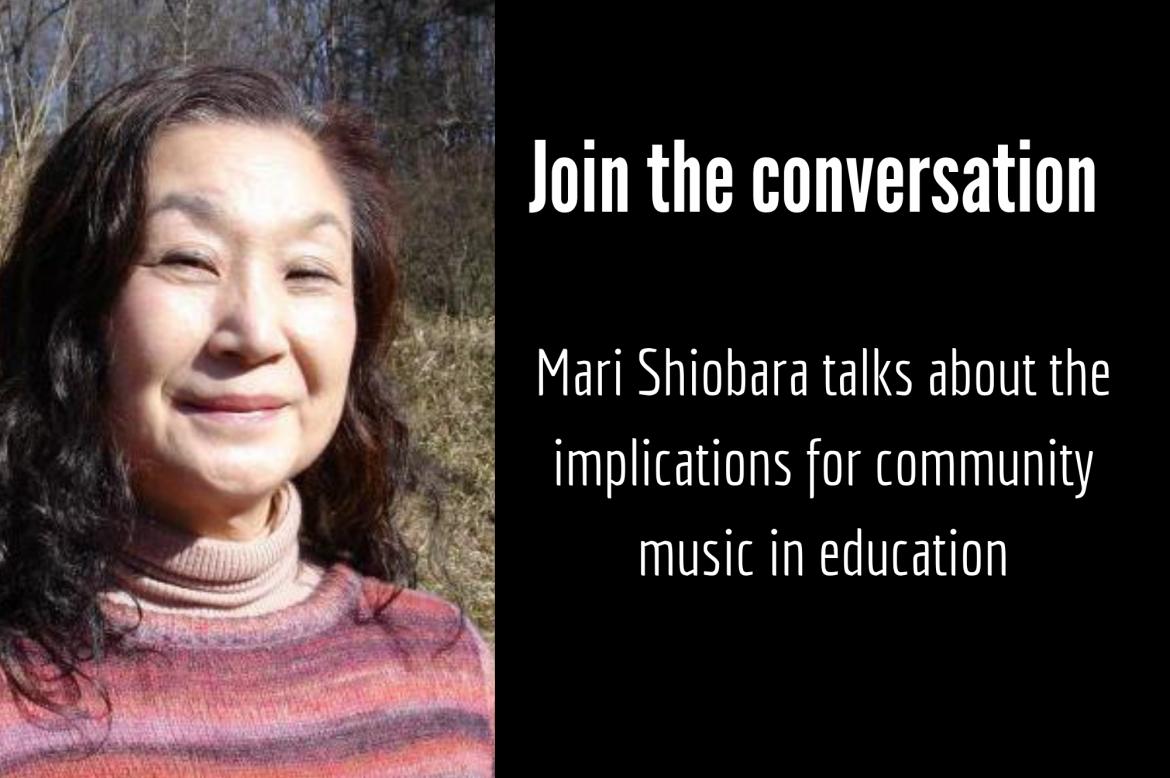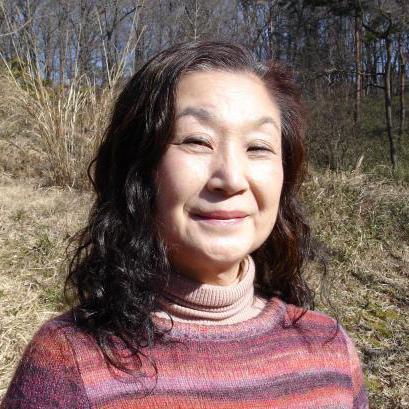Young students entering music colleges have chosen music as their major and as the basis of their future careers. They are usually those that had been recognised as possessing outstanding musical talents during their primary and/or secondary school years and have had positive experiences in both music making and perception; many of them also took on leadership roles in music events and festivals during those school years. Since music is their love and what they are good at, they have devoted many hours to practicing and have dedicated a significant part of everyday life to their music studies. Often those studies are solitarily carried out and may sometimes isolate them from their peers. Musical training is highly disciplined and demands a lot from a young person’s life that includes coping with the studies of other subjects required by the school curriculum. But it is well worth it: for them music is fun in its best sense and gives their lives joy and meaning.
In my native Japan school music—especially extracurricular group music activities—are open to a wide range of students and plays a vital role in enriching their musical lives. Many children have positive musical experiences under the supervision of dedicated music teachers, but after entering the conservatory they realise that there are many other talented students like themselves, thus creating a competitive environment that they hadn’t expected. Apart from examination and audition settings, there are few opportunities for them to perform in front of an audience unless they have been recognised as exceptionally talented. Even for the most talented student musicians, breaking into the music business and becoming professional musicians is extremely difficult. We all know that the music business world is very competitive.
The term community music seems to attract those music students who become aware of the competitive circumstances just mentioned. It seems to help them keep their heads up and maintain their belief in music’s power in a highly stressful environment. They are serious about their professional futures and they know they are facing crossroads. Thinking about community music can be a turning point for some students, causing them to think about music differently and various aspects of music become increasingly important and urgent for them. The word community coupled with music opens up new possibilities of music for them and gives them opportunities to be creative with their friends and beyond.
An open-ended questionnaire was administered to third-year music students at a college of music in Tokyo, who had expressed an interest in community music by taking a newly offered community music seminar and community music course in 2016. The results reveal their views about such music.
Student A wrote that “for me community music helps others feel better and music helps lift up their feelings. Music makes people healthier and gives them courage to face everyday life.” Student B analyses community music as “… connecting person to person, people to people together with music. This means we share our time and feelings with it.” Student C says that “community music can connect our hearts together and if we can connect our hearts together with it, music becomes increasingly enjoyable. It goes both ways.” Student D speculates that “community music refers to the power of music. I think it is a tool for creating universal understanding without words.” For these students the most significant characteristics of community music is to connect people with heart-felt communal music making experiences. They think that in this way music promotes health and wellbeing for those who participate in it.
Student E adds an interesting element of diversity among participants, situations, and activities to the above mentioned characteristics of community music. She says that, “community music deepens friendships among people and creates peaceful minds for those who participate in it. According to situations and those with whom we engage, we can create various programs.” Student F agrees with this, but goes further by saying that “community music is to share music with many different people and yet it enables us to enjoy music in our own individual ways.” This comment illustrates the very unique nature of musical experience itself. Student G talks also about diverse situations and contexts of music in a community: “in our everyday life we live among people and have various relationships with each other. Community means a group of people who have commonality. In community music we also share different interests. There are numerous communities which share music.”
The students who have already started training to be music leaders in community music give practical views about how community music functions and how it is to be carried out. Student H reflects that, “there are many different communities. When I plan a music workshop for a community, I need to consider who the participants are, what kind of expectations they have, what kind of music they like, and how music should be introduced and created. There are many different ways in community music.” This comment by student H sympathises with a good and effective music teacher thinking about her or his classroom. Student I states that, “community music is equal music and everybody is welcomed to join in,” and student J reminds us that “we cannot participate in community music alone. There should be more than two people involved in such music making. Community music has no division between performer and listener, and we share the moments of creating music together.” Student K believes that in community music “…the relationship between the facilitator and the participants is crucial.”
This last comment could very easily be paraphrased in educational settings stating that “the relationship between the teacher and the students is crucial.” Interestingly, the more the music students were exposed to community music activities in the role of leaders, the more they would think like effective music educators/teachers do. Student L’s comment is a good example of this: “Community music is not a natural phenomenon, but a deliberately created musical space through the efforts of a facilitator and his/her assistants and supporters for the participants. There should be intentions to make community music possible. There are so many elements to consider in order to carry out community music successfully.”
The views of community music presented by the music students involve such elements as people, facilitation, participation, sharing, diversity, relationships, equality, where performing and listening to music are inseparable. It is not surprising that such elements relating to the nature of music and how it functions in our lives is often neglected in professional musician training, which prioritizes specialised skills and knowledge and therefore neglects—or rarely stresses—music teacher education in music colleges. Through thinking about community music and developing individual leadership skills in community music settings, the young musicians start thinking creatively about their futures as facilitators of music in community and in some cases they begin seriously considering teaching music as their profession.
Through carrying out community music projects, the music students began to identify what they can do and how to use their strengths for planning them. They are not to be pressured in any way for overcoming what they feel weak about. Rather, they should be given enough time to solve their problems with appropriate support from their fellow students. As the music students themselves indentified the above, there are several points to consider for successful community music: understand and emphasise that the participants are the first priority; learn to adopt in various situations; think and act independently; learn to be both music leader, facilitator and supporter; become musical role models to participants; develop one’s own ways of facilitating music.
Musical satisfaction and sharing warm feelings among the participants through music making is the most important outcome in community music. Without this, the workshops are not satisfactory and will fail, just as in music classroom situations. Implications of community music in education for musicians and music teachers are found precisely in the role it plays as the bridge connecting between them in musical and uniquely human ways.
In my native Japan school music—especially extracurricular group music activities—are open to a wide range of students and plays a vital role in enriching their musical lives. Many children have positive musical experiences under the supervision of dedicated music teachers, but after entering the conservatory they realise that there are many other talented students like themselves, thus creating a competitive environment that they hadn’t expected. Apart from examination and audition settings, there are few opportunities for them to perform in front of an audience unless they have been recognised as exceptionally talented. Even for the most talented student musicians, breaking into the music business and becoming professional musicians is extremely difficult. We all know that the music business world is very competitive.
The term community music seems to attract those music students who become aware of the competitive circumstances just mentioned. It seems to help them keep their heads up and maintain their belief in music’s power in a highly stressful environment. They are serious about their professional futures and they know they are facing crossroads. Thinking about community music can be a turning point for some students, causing them to think about music differently and various aspects of music become increasingly important and urgent for them. The word community coupled with music opens up new possibilities of music for them and gives them opportunities to be creative with their friends and beyond.
An open-ended questionnaire was administered to third-year music students at a college of music in Tokyo, who had expressed an interest in community music by taking a newly offered community music seminar and community music course in 2016. The results reveal their views about such music.
Student A wrote that “for me community music helps others feel better and music helps lift up their feelings. Music makes people healthier and gives them courage to face everyday life.” Student B analyses community music as “… connecting person to person, people to people together with music. This means we share our time and feelings with it.” Student C says that “community music can connect our hearts together and if we can connect our hearts together with it, music becomes increasingly enjoyable. It goes both ways.” Student D speculates that “community music refers to the power of music. I think it is a tool for creating universal understanding without words.” For these students the most significant characteristics of community music is to connect people with heart-felt communal music making experiences. They think that in this way music promotes health and wellbeing for those who participate in it.
Student E adds an interesting element of diversity among participants, situations, and activities to the above mentioned characteristics of community music. She says that, “community music deepens friendships among people and creates peaceful minds for those who participate in it. According to situations and those with whom we engage, we can create various programs.” Student F agrees with this, but goes further by saying that “community music is to share music with many different people and yet it enables us to enjoy music in our own individual ways.” This comment illustrates the very unique nature of musical experience itself. Student G talks also about diverse situations and contexts of music in a community: “in our everyday life we live among people and have various relationships with each other. Community means a group of people who have commonality. In community music we also share different interests. There are numerous communities which share music.”
The students who have already started training to be music leaders in community music give practical views about how community music functions and how it is to be carried out. Student H reflects that, “there are many different communities. When I plan a music workshop for a community, I need to consider who the participants are, what kind of expectations they have, what kind of music they like, and how music should be introduced and created. There are many different ways in community music.” This comment by student H sympathises with a good and effective music teacher thinking about her or his classroom. Student I states that, “community music is equal music and everybody is welcomed to join in,” and student J reminds us that “we cannot participate in community music alone. There should be more than two people involved in such music making. Community music has no division between performer and listener, and we share the moments of creating music together.” Student K believes that in community music “…the relationship between the facilitator and the participants is crucial.”
This last comment could very easily be paraphrased in educational settings stating that “the relationship between the teacher and the students is crucial.” Interestingly, the more the music students were exposed to community music activities in the role of leaders, the more they would think like effective music educators/teachers do. Student L’s comment is a good example of this: “Community music is not a natural phenomenon, but a deliberately created musical space through the efforts of a facilitator and his/her assistants and supporters for the participants. There should be intentions to make community music possible. There are so many elements to consider in order to carry out community music successfully.”
The views of community music presented by the music students involve such elements as people, facilitation, participation, sharing, diversity, relationships, equality, where performing and listening to music are inseparable. It is not surprising that such elements relating to the nature of music and how it functions in our lives is often neglected in professional musician training, which prioritizes specialised skills and knowledge and therefore neglects—or rarely stresses—music teacher education in music colleges. Through thinking about community music and developing individual leadership skills in community music settings, the young musicians start thinking creatively about their futures as facilitators of music in community and in some cases they begin seriously considering teaching music as their profession.
Through carrying out community music projects, the music students began to identify what they can do and how to use their strengths for planning them. They are not to be pressured in any way for overcoming what they feel weak about. Rather, they should be given enough time to solve their problems with appropriate support from their fellow students. As the music students themselves indentified the above, there are several points to consider for successful community music: understand and emphasise that the participants are the first priority; learn to adopt in various situations; think and act independently; learn to be both music leader, facilitator and supporter; become musical role models to participants; develop one’s own ways of facilitating music.
Musical satisfaction and sharing warm feelings among the participants through music making is the most important outcome in community music. Without this, the workshops are not satisfactory and will fail, just as in music classroom situations. Implications of community music in education for musicians and music teachers are found precisely in the role it plays as the bridge connecting between them in musical and uniquely human ways.
What are your thoughts on this blog post? Share them below.













